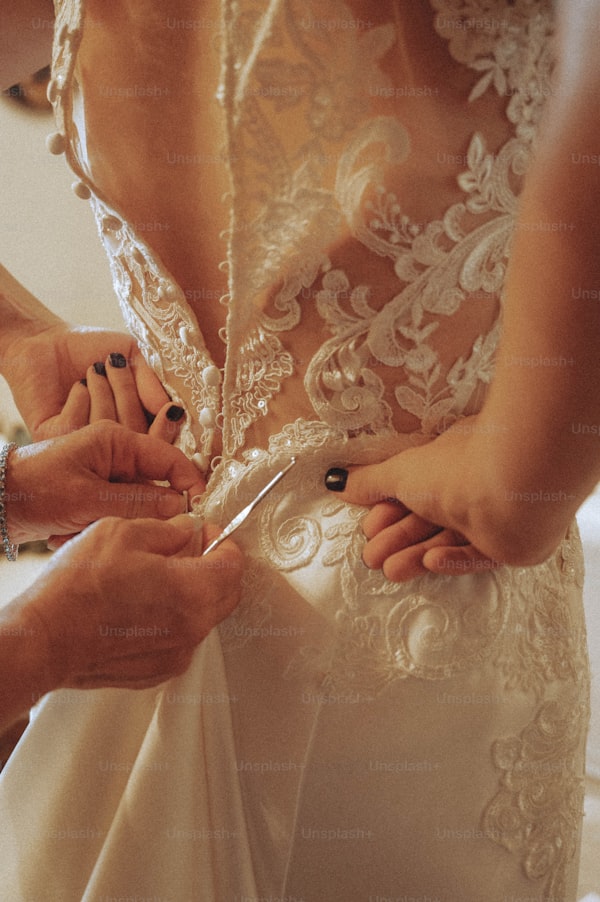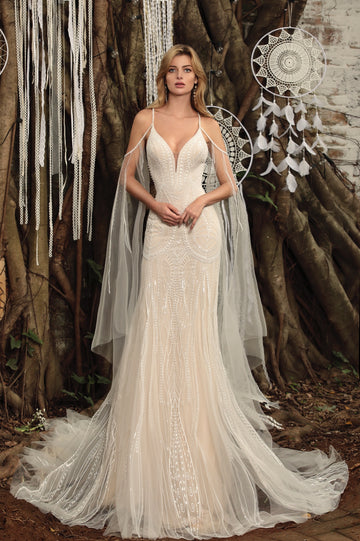Ensuring the Durability of Zippers and Buttons on Your Wedding Dress: Effective Methods Explained
Ensuring the Durability of Zippers and Buttons on Your Wedding Dress: Effective Methods Explained
Introduction
When it comes to selecting a wedding dress, one of the important factors to consider is its durability, especially when it comes to zippers and buttons. Wedding dresses are often worn for long periods, and the last thing any bride wants is a malfunctioning zipper or a button that pops off at the most inconvenient moment. In this article, we will explore the various methods used to ensure the durability of zippers and buttons on Wedding dresses, along with answers to related questions that brides might have as they prepare for their big day.
Why Durability Matters
The durability of zippers and buttons on a wedding dress is crucial for a few reasons. Firstly, a wedding dress is typically worn for extended periods throughout the day, including during the ceremony and the reception. Secondly, Wedding dresses are often subject to various pressures—from dancing to hugging friends and family. Finally, the emotional significance of the dress increases the need for reliable fastenings. Brides want every moment of their special day to be perfect, without worrying about wardrobe malfunctions.
Common Methods for Ensuring Durability
There are several methods and best practices in the fashion industry that ensure the longevity and performance of zippers and buttons on Wedding dresses. Below are some of the most effective techniques.
1. Choosing the Right Materials
The choice of materials is fundamental in enhancing durability. High-quality zippers made from robust nylon or metal are preferred over cheaper alternatives. Similarly, buttons made from durable plastics or natural materials like bone or ivory can withstand the rigors of the wedding day.
2. Reinforcing Stress Points
Bridal designers often reinforce stress points along zippers and buttons. This includes additional stitching, applying fusible interfacing, or using reinforced buttonholes. By doing so, they minimize the risk of tearing or fraying in high-strain areas.
3. Seam Construction Techniques
How the zipper or buttons are integrated into the wedding dress significantly affects their durability. Techniques such as flat-felled seams can provide added strength and reduce the risk of wear and tear. When buttons are sewn onto the dress, using a shank (a small raised area above the fabric) can help distribute force across a wider area, lessening the strain on any one point.
4. Quality Control Checks
Reputable bridal shops and designers often implement quality control checks, where zippers and buttons are tested for strength and durability before the dress is sold. This ensures that any potential issues are identified and rectified prior to the wedding day.
| Method | Description | Benefits |
| Material Selection | Use of high-quality zippers and buttons | Enhanced durability and performance |
| Reinforcing Stress Points | Including extra stitching or interfacing | Prevents tearing and fraying |
| Seam Construction | Employing strong seam techniques | Improved strength and longevity |
| Quality Control | Testing zippers and buttons before sale | Ensures reliability on the wedding day |
Frequently Asked Questions
What should I look for in a wedding dress with buttons and zippers?
When choosing a wedding dress, inspect the quality of the materials used for zippers and buttons, as well as the craftsmanship. Look for dresses with reinforced seams and secure closures. It can also be helpful to test the zipper and buttons to assess their functionality.
Can I request alterations for improved durability?
Absolutely! If you are concerned about the durability of your wedding dress, don't hesitate to consult a professional seamstress. They can help reinforce zippers or buttons and make necessary adjustments suited to your needs.
How do I maintain the durability of my wedding dress post-wedding?
After your wedding day, proper care of your dress is essential. Dry cleaning should be done by a professional who specializes in wedding garments, ensuring that the fabric, zippers, and buttons are treated gently to maintain their integrity.

Conclusion
In conclusion, ensuring the durability of zippers and buttons on a wedding dress is of paramount importance to any bride. By paying attention to the materials used, reinforcing stress points, employing robust seam construction techniques, and ensuring regular quality control, designers can create Wedding dresses that not only look stunning but also perform well throughout the ceremony and reception.
As you prepare for your special day, consider these methods when selecting and caring for your wedding dress. With appropriate knowledge and precautions, you can enjoy your wedding day full of grace and confidence, unhindered by worries about your attire.
